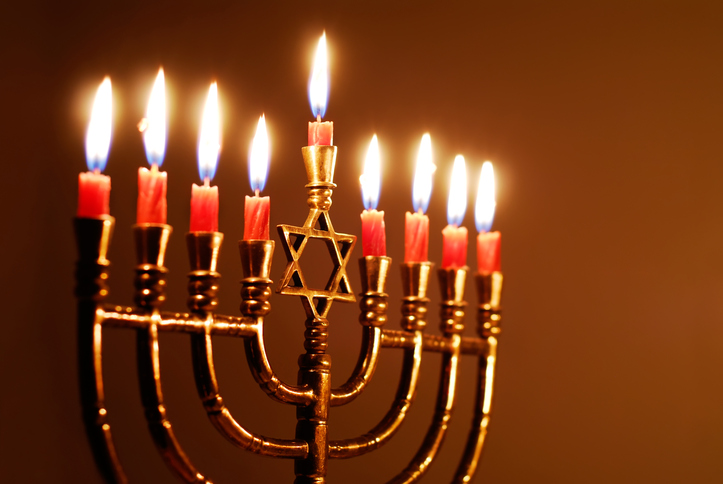light
(noun, adjective, verb)
/laɪt/
 LISTEN
LISTEN


We think you already know that light is the brightness that makes things visible or something that gives that brightness, like the sun or a lamp. Traffic lights, matches, or lighters can also be called lights. Figuratively, the ways things are looked at, awareness or understanding, and also someone important can be called light. As an adjective, it means ‘bright’ or ‘pale in color’, and as a verb, ‘to cause to burn’ or ‘to make bright.’ Unrelatedly, the adjective light means ‘of little weight or amount,’ ‘trivial or entertaining,’ ‘cheerful’ and, when we are talking about food or drinks, ‘not rich’ or ‘low in alcohol.’
Example sentences
- A queue of cars was waiting at the lights.
- The young woman asked a passerby for a light for her cigarette.
- Seen in that light, your suggestion seems quite reasonable.
- Sean was wearing a light blue shirt.
- Tania lit the fire.
- The book was a light read—perfect for taking on holiday.
- Sabina prepared a light supper.
- John had to drive home after the party, so he only had one light beer.
Words often used with light
come to light: be discovered. Example: “The police released the suspect, after new evidence came to light, proving she could not have committed the crime.”
see the light: finally understand or accept something. Example: “My husband didn’t understand why I liked this show so much, but he’s finally seen the light and now he watches it with me.”
the light at the end of the tunnel: the realization that something can be achieved or brought to an end. Example: “Veronica has been overwhelmed with work for months, but she’s finally starting to see the light at the end of the tunnel, and she should get everything finished in time for her holiday.”
shed light on something: to make something clearer. Example: “Can you shed any light on why all the chocolate has disappeared from the cupboard?”
in the light of something: taking something into consideration. Example: “In the light of this new information, we will have to put the project on hold for now.”
hide your light under a bushel (mainly UK): be modest, attempt to conceal your talents or achievements. Example: “I had no idea you’d won an Olympic medal. You’ve been hiding your light under a bushel all this time!”
light of someone’s life (or: of someone’s eyes): the source of someone’s joy or delight. Example: “My daughter is the light of my life.”
In pop culture
You can listen to Katrina and the Waves singing “Love Shine a Light,” the song that won the Eurovision Song Contest for the UK in 1997, here:
Additional information
The verb to light, followed by on or upon, can also mean ‘to come down to rest’ and ‘to hit or happen on by chance.’ So, you might say, for example, “No one knew how to overcome the problems in the project, until Diana lit upon the perfect solution.” Informally, and followed by into it means ‘to attack,’ for example, “The drunk lit into the guy who’d spilled his drink.” Also informally, when followed by out, light means ‘to depart quickly,’ for example, “Sheila lit out of there as fast as she could.”
Did you know?
Hanukkah (also spelled Chanukah or Hanukah) is a Jewish celebration that is also known as the Feast or Festival of Lights. Hanukkah begins on the twenty-fifth day of Kislev (the ninth month of the Hebrew ecclesiastical year) and is observed for eight nights and days with the kindling (lighting) of lights on a menorah (a candle holder with nine branches, like the one in the picture above). One of the branches of the menorah is usually above the rest. This branch holds the candle that is used to light the others (this light is called a shamash). The festival is observed by lighting one of the other eight candles on each night of Hanukkah, until all eight are alight. This is done to commemorate the rededication of the Holy Temple in Jerusalem, in 165 BCE, following two years when Judaism had been banned by King Antiochus of Syria (at the time, Judea was part of the Seleucid Empire of Syria). When the temple was rededicated, oil was needed for the menorah in the temple, which had to burn throughout the night, every night. However, the oil had to be pure olive oil and had to bear the seal of the high priest. Only one flask of oil meeting these requirements could be found and it contained only enough oil for one day. The menorah was lit, nonetheless, and, by a miracle, it continued to burn for eight days, which was enough time for more oil to be prepared. The lighting of the menorah over the eight nights of Hanukkah commemorates this miracle.
Origin
Light, meaning ‘brightness, radiant energy or what makes things visible’ dates back to before the year 900. The Old English noun lēoht and later lēht originally meant ‘light or daylight.’ It can be traced back to the Proto-Germanic leukhtam and the Proto-Indo-European root leuk- (light or brightness). It is related to the Old Saxon lioht, the Old Frisian liacht, the Middle Dutch lucht, the Dutch licht, the Old High German lioht, the German Licht and the Gothic liuhaþ (all meaning ‘light’), as well as the Greek leukós (bright, shining or white) and the Latin lucere (to shine) lūx (light) and lucidus (clear). Countless words in many European languages can be traced back to this root, including the English words lucid, elucidate, leukemia and illustration, and even the name Lucifer. The noun became light in Middle English, with the ‘g’ added to emphasize the hard ‘h’ pronunciation (we no longer pronounce it that way, but we kept the spelling). The figurative sense, ‘spiritual illumination,’ has been used since Old English, but it expanded to ‘mental illumination’ in the mid-15th century. The meaning ‘something used for igniting an object’ dates back to the late 17th century. The expression ‘the light of someone’s eyes,’ meaning that person’s source of joy or delight, has existed since Old English, while “to see the light” appeared in the late 17th century. The adjective, with many of its different meanings, also dates back to before the year 900, and has the same origin as the noun (it’s impossible to know which came first). The Old English adjective lēoht (and adverb lēohte) could mean ‘not heavy,’ ‘lightly constructed,’ ‘easy to do,’ ‘quick,’ ‘luminous, bright or shining’ or ‘beautiful,’ but a common meaning for us, ‘pale-hued’ is from the mid-16th century, when many other color-related adjectives appeared. The verb also dates back to before the year 900, in the form of the Old English verb līhtan, and then the Middle English lighten. It could mean ‘to ignite or set on fire’ and ‘to make less heavy,’ as well as, figuratively, ‘to illuminate or fill with brightness.’ Another meaning, just as old, is ‘to touch down’ (like a bird or an aircraft landing) or ‘to descend or get down’ (from somewhere or something, like a horse). This meaning has been mostly taken over by the verb alight, but still exists in phrases like ‘to light on.’
Word of the Day is released Monday through Friday.



